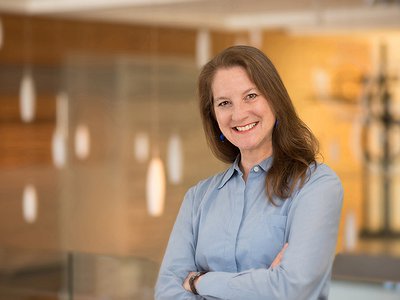Name: Lisa Bielawa
Nationality: American
Occupation: Composer
Current Release: Vireo on Orange Mountain Music
Recommendations: Reading Rachel Cusk right now. Lawrence Durrell’s Alexandria Quartet. Pushkin’s Eugene Onegin. Flaubert’s letters. I could go on forever!
If you enjoyed this interview with Lisa Bielawa, visit her excellent website for more information. There is also a special website about her Vireo project. Finally, Lisa already took part in a previous incarnation of the 15 Questions interview series. You can find her replies here.
When did you start composing - and what or who were your early passions and influences?
My father was a composer and my brother and I started our musical training very early in the Suzuki program at the age of 3. There wasn’t a precise moment when our bashings and howlings became actual composing, but I have early ‘scores’ from when I was 6 or 7. Early passions and influences came from his world – Morton Subotnick, Berio, Stravinsky (he was a student of Soulima’s), Ingolf Dahl – and from my exposure to Bach and early keyboard works through my mother, keyboardist and performance practice scholar Sandra Soderlund. When I was 10 I was the child soloist in Leonard Bernstein’s “Mass,” which was also a huge influence.
For most artists, originality is first preceded by a phase of learning and, often, emulating others. What was this like for you? How would you describe your own development as an artist and the transition towards your own voice? What is the the relationship between copying, learning and your own creativity?
I don’t really remember a conscious sense that I was copying or learning, then transitioning to being “original.” It all happened very early. I do remember that when I was required to copy a style as an assignment in college music/composition classes, I was completely incapable of doing it well. Similarly, when I tried my hand at cabaret songs and jazz, what I came up with was not quite right either. It always went better for me when I gave up on conscious models. In fact, this was part of the reason I decided not to major in Music at all, and ended up getting my degree at Yale in French Literature instead.
What were some of the most important creative challenges when starting out as a composer and how have they changed over time?
I was writing primarily choral music and songs of various sorts for most of my teens and early 20’s, and this was likely because my brother, who was a year ahead of me in school, was on the family track towards a composition career. Now that we have some historical distance on it all, my brother and I see very clearly that, because he was the boy and the oldest, these aspirations and expectations alighted primarily on him – which left me in some sense free from the hegemonic pressures of being a Composer but also made it difficult and a little circuitous for me to find my way to what I am actually best at, which is large-form compositional models.
Tell us about your studio/work space, please. What were criteria when setting it up and how does this environment influence the creative process? How important, relatively speaking, are factors like mood, ergonomics, haptics and technology for you?
Haptics! You have taught me a new word!!
I have a truly beloved 1927 Steinway M in my living room that I moved in with fifteen years ago – I bought it from some new music colleagues who were the former tenants, and realized after the transaction was accomplished that I couldn’t afford to get it out of the fifth-floor walkup, so I broke my lease in Queens, left all of my furniture out on the sidewalk, and moved in with the piano. This romance (which made the front page of the NY Times Real Estate section, btw!) is at the core of my compositional rituals when I am at home. I am a very early riser, and tend to compose best between 5 and 10am. But I am also on the road sometimes more than 30 weeks a year, so I have a pretty ready ability to compose pretty much anywhere if necessary – on planes even.
Could you take us through a day in your life, from a possible morning routine through to your work? Do you have a fixed schedule? How do music and other aspects of your life feed back into each other - do you separate them or instead try to make them blend seamlessly?
Again, since I travel so much and do not have any external regulating factors (I live alone, do not have any full-time employment with a regular schedule, am on the road a lot, etc.), there is very little that can be said about a day in my life as exemplary. I do thrive, in fact, on every single day being totally different from the last. I like to go running when I am ‘stuck’ because I find that I solve problems when I run. I like to have nice treats – 4 or 5 small meals a day – so I can spend the entire day having little pockets of work time, punctuated by rewards. I need an enormous amount of solitude in general but also find great joy in breakfasts, dinners, drinks, coffees or walks with the close friends that I am fortunate to have quite a few of.
There are many descriptions of the ideal state of mind for being creative. What is it like for you? What supports this ideal state of mind and what are distractions? Are there strategies to enter into this state more easily?
There can be some ecstatic states – surges of creative activity – and some slogging states. There doesn’t seem to be any particular desirability of one over the other, in terms of the quality of the work created. At the beginning of a piece I tend to spend only short spurts of time – sometimes just 10-15 minutes – at the piano, but I can tell that I am doing conceptual work on the piece in the back of my mind all the time. The second half of the process – which usually means anywhere from a month to four months, depending on how big the piece is – is marked by an extremely deep and unwavering concentration. I am fortunate to have a very high capacity for sustained, high-concentration activity. General wellness is what makes it possible, since this state does of course place huge and sometimes even terrible demands on the system: exercise, good food, actual human contact every once in a while, sleep (which usually flies out the window when I’m really close to the end), reading.
Could you take me through the process of composing on the basis of one of your pieces that's particularly dear to you, please? Where did the ideas come from, how were they transformed in your mind, what did you start with and how do you refine these beginnings into the finished work of art?
‘In medias res,’ my concerto for orchestra, was the most sublime and lovely, well-balanced exercise of creativity – and I must admit I don’t think I have every achieved it since. The piece wove together themes from 15 solo pieces I had written over two years for individual members of the Boston Modern Orchestra Project, commissioner of the work. So I had a lot of materials that had been worked up in a detailed and smaller-scale way, through real human relationships over time. Then, when it came time to write the big work, I actually spent 6-7 months composing for 4-5 hours each morning and then going to museums, reading, walking, taking care of other business for the rest of the day. It was so civilized! And I haven’t had a single experience like that since. Composing ‘Incessabili Voce,’ on the other hand – a vocal-chamber work of similar length – was the opposite. It was written over 4-5 months, starting with inchoate elements that I assumed would start to make sense together as I worked, but it turned out that the entire process was lurching and emotionally uncomfortable, forcing myself to sit down and work and never feeling like I had a breakthrough, never quite unlocking the mystery of what the piece wanted to be. Both pieces turned out successful, btw – and actually joyful too! One process was Apollonian, the other Dionysian (or even chthonic) – but both pieces came out great. Go figure.



